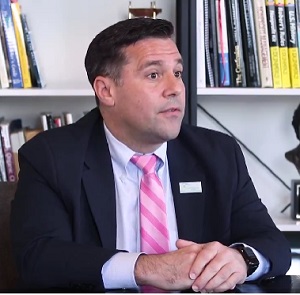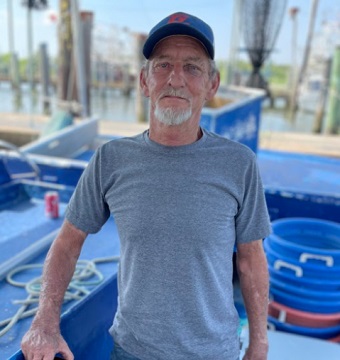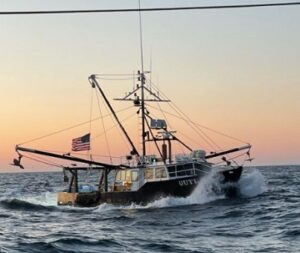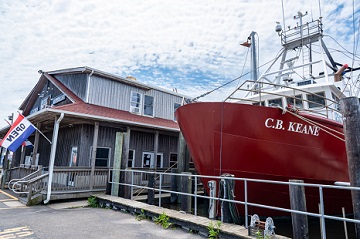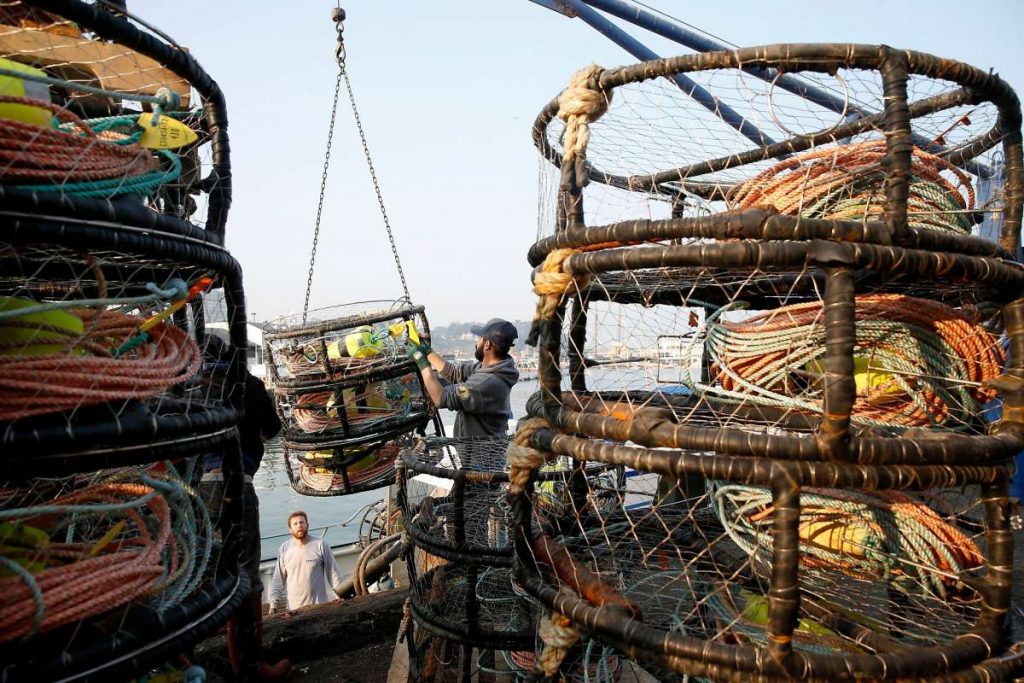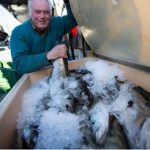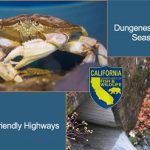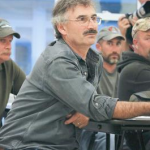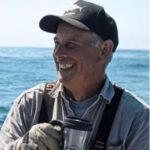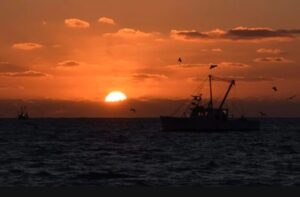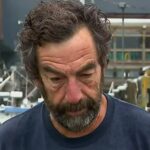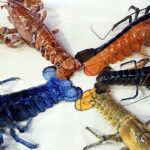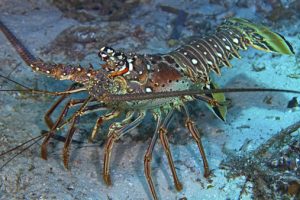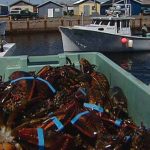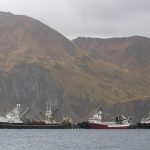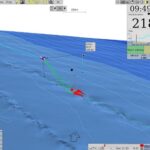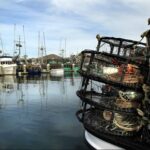Monthly Archives: August 2023
Too Many Seals – Canada’s Pinniped Population Problem
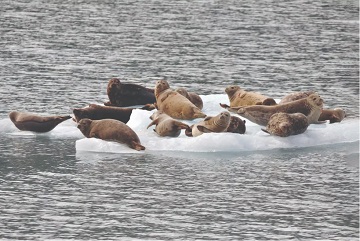 Seals in Atlantic Canada eat a lot of fish every day and there is a great deal of them, coming in at nearly 12 million animals. Their voracious appetite, according to experts, is damaging both the commercial fishery and fish stocks. Bob Hardy has spent a good portion of his life dealing with seals in one way or another. Growing up in Battle Harbour, Labrador, Hardy spent some time taking part in the inshore cod and salmon fisheries. After graduating from university, he spent nine years as a researcher before entering the seafood industry wherein he developed the first seal oil capsule that was commercially available in Newfoundland and Labrador. In 2007, he founded Hardy Fish Co., a fisheries consultancy company, where he took part in projects that researched seal oil, meat and by-product utilization. He has also spent time as a member of the Atlantic Seal Science Task Team. Hardy has since drafted a document entitled, Seals Eat Fish, highlighting the impact the large seal population has on fish stocks and the fishery itself. >click to read< 18:56
Seals in Atlantic Canada eat a lot of fish every day and there is a great deal of them, coming in at nearly 12 million animals. Their voracious appetite, according to experts, is damaging both the commercial fishery and fish stocks. Bob Hardy has spent a good portion of his life dealing with seals in one way or another. Growing up in Battle Harbour, Labrador, Hardy spent some time taking part in the inshore cod and salmon fisheries. After graduating from university, he spent nine years as a researcher before entering the seafood industry wherein he developed the first seal oil capsule that was commercially available in Newfoundland and Labrador. In 2007, he founded Hardy Fish Co., a fisheries consultancy company, where he took part in projects that researched seal oil, meat and by-product utilization. He has also spent time as a member of the Atlantic Seal Science Task Team. Hardy has since drafted a document entitled, Seals Eat Fish, highlighting the impact the large seal population has on fish stocks and the fishery itself. >click to read< 18:56
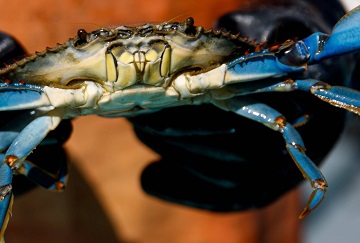
Is the answer to Maryland’s blue crab shortage in Italy?
In Italy, where the blue crab is an invasive species, population numbers are growing quickly and threatening the country’s clam industry, according to a report from Reuters. A local marine biologist told the wire service that invasive “blue crabs” (yes, they really put our beloved crustacean in scare quotes) have eaten up to 90% of young clams in some areas, devastating future production. The leading theory is the crabs were not introduced to Italy’s waters intentionally but arrived in bilge water aboard cargo ships. The region of hit hardest has lots of clam farms, giving the crabs large, dense populations of clams to feast on. Couple that with warmer water, which makes it easier for the crabs to survive the winter, and it “sounds like blue crab paradise,” Colden said. “It’s a perfect Italian vacation spot for the blue crabs in terms of lounging and getting fat and happy,” she said. >click to read< 15:31
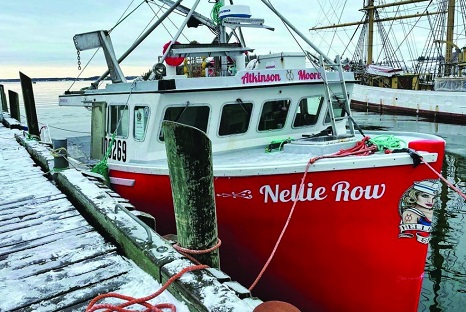
Setting Her Own Course – Lobstering with Lunenburg Harvester Gail Atkinson
Gail Atkinson is one of Canada’s very few female lobster harvesters, who employs an almost entirely female crew aboard the Nellie Row. Gail Atkinson grew up on Cape Sable Island in Southwest Nova Scotia. Coming from a long line of fish harvesters and boat builders, she originally had no desire to follow in her family’s footsteps. “I ended up starting fishing with my father,” said Atkinson. “I started when I was a little bit older because I couldn’t wait to get out of there. But, something happened, and I just ended up back there and I ended up going for a trip fishing, and I just fell in love with it. The rest was history.” Atkinson spent almost 20 years fishing with her father before she went off on her own to run an enterprise. Photos, >click to read< 13:39
Skipper in deep water again after Catlins sinking
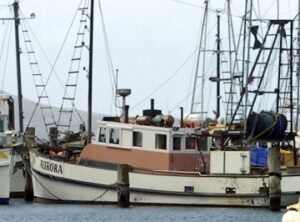 A rogue Dunedin commercial fisherman who flouted maritime rules has, like his vessel, found himself in deep water. Wayne John Jolly, 58, appeared in the Dunedin District Court this week after admitting skippering a ship without appropriate documentation and was sentenced to 250 hours’ community work. The importance of complying with such protocols was resoundingly brought home to Jolly in March last year when his boat Aurora – a 15.6m wooden trawler built in Port Chalmers in 1958 – sank about a nautical mile off the coast of the Tautuku Peninsula, in the Catlins. Jolly’s history of non-compliance with maritime law stretched back 17 years. >click to read< 10:02
A rogue Dunedin commercial fisherman who flouted maritime rules has, like his vessel, found himself in deep water. Wayne John Jolly, 58, appeared in the Dunedin District Court this week after admitting skippering a ship without appropriate documentation and was sentenced to 250 hours’ community work. The importance of complying with such protocols was resoundingly brought home to Jolly in March last year when his boat Aurora – a 15.6m wooden trawler built in Port Chalmers in 1958 – sank about a nautical mile off the coast of the Tautuku Peninsula, in the Catlins. Jolly’s history of non-compliance with maritime law stretched back 17 years. >click to read< 10:02
Oregon crabbers and environmentalists are at odds as a commission votes on rules to protect whales
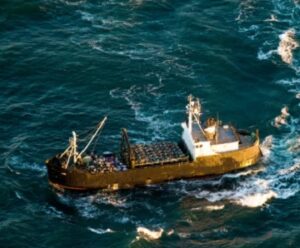 In the wheelhouse of a crab boat named Heidi Sue, Mike Pettis watched the gray whale surface and shoot water through its blowhole. Tangled around its tail was a polypropylene rope used to pull up crab traps. That was in 2004, off the waters of Waldport, Oregon. Pettis, a crab fisherman, said it’s the only time in his 44 years of fishing he has ever seen a whale caught in crab lines, and he believes that is proof such encounters are “extremely rare.” The Oregon Fish and Wildlife Commission is expected to vote Friday on whether to permanently set stricter rules and pot limits put in place in 2020 to protect whales. The restrictions, which were originally supposed to end after this season, would reduce the number of traps, known as pots, and how deep they can drop in the spring and summer months when humpbacks are more likely to encounter them. >click to read< 09:01
In the wheelhouse of a crab boat named Heidi Sue, Mike Pettis watched the gray whale surface and shoot water through its blowhole. Tangled around its tail was a polypropylene rope used to pull up crab traps. That was in 2004, off the waters of Waldport, Oregon. Pettis, a crab fisherman, said it’s the only time in his 44 years of fishing he has ever seen a whale caught in crab lines, and he believes that is proof such encounters are “extremely rare.” The Oregon Fish and Wildlife Commission is expected to vote Friday on whether to permanently set stricter rules and pot limits put in place in 2020 to protect whales. The restrictions, which were originally supposed to end after this season, would reduce the number of traps, known as pots, and how deep they can drop in the spring and summer months when humpbacks are more likely to encounter them. >click to read< 09:01
Shrimp fisherman gets back earring lost at sea 23 years ago
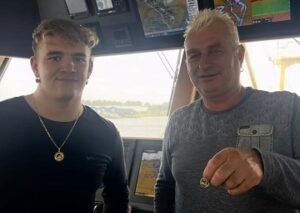 Shrimp fisherman Henk Kuiper has been reunited with an earring he lost at sea some 23 years ago, when it turned up on board another trawler, Dutch media reported on Friday. The earring features a silhouette of the trawler WR70 which actually sank some 36 years ago off the coast of Tereschelling and was of great sentimental value to Kuiper. He was on board at the time. “I was busy hosing down the decks when we were finished fishing and then I saw it stuck on the rubber edging,” trainee fisherman Noah Schroevers told the paper. “We took photos and put them online.” >click to read< 08:01
Shrimp fisherman Henk Kuiper has been reunited with an earring he lost at sea some 23 years ago, when it turned up on board another trawler, Dutch media reported on Friday. The earring features a silhouette of the trawler WR70 which actually sank some 36 years ago off the coast of Tereschelling and was of great sentimental value to Kuiper. He was on board at the time. “I was busy hosing down the decks when we were finished fishing and then I saw it stuck on the rubber edging,” trainee fisherman Noah Schroevers told the paper. “We took photos and put them online.” >click to read< 08:01
Cape Breton boatbuilders help DFO to face commercial, climate change challenges
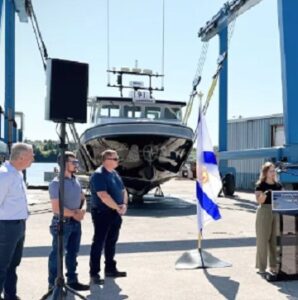 The federal Department of Fisheries and Oceans is having four new patrol boats built in rural Cape Breton to address some of the challenges faced by fisheries enforcement officers. The new boats are larger than the existing ones to better deal with the effects of climate change, larger commercial vessels and heavier fishing gear. Once completed, the boats will be used in the Atlantic region. “As we’ve seen in the last couple of years, climate change is a huge thing … and adverse weather conditions are getting more and more frequent and our officers just don’t take a day off because it’s really bad weather-wise,” said Scott Phillips, DFO’s eastern Nova Scotia area chief of conservation and protection. Photos, >click to read< 17:27
The federal Department of Fisheries and Oceans is having four new patrol boats built in rural Cape Breton to address some of the challenges faced by fisheries enforcement officers. The new boats are larger than the existing ones to better deal with the effects of climate change, larger commercial vessels and heavier fishing gear. Once completed, the boats will be used in the Atlantic region. “As we’ve seen in the last couple of years, climate change is a huge thing … and adverse weather conditions are getting more and more frequent and our officers just don’t take a day off because it’s really bad weather-wise,” said Scott Phillips, DFO’s eastern Nova Scotia area chief of conservation and protection. Photos, >click to read< 17:27
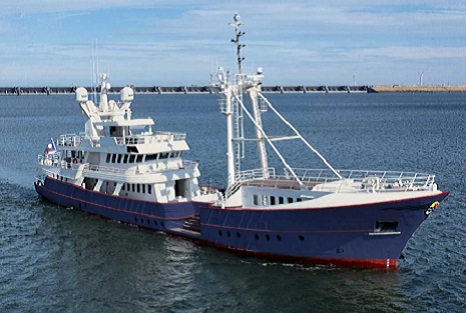
Scintilla Maris: 46m trawler converted into explorer yacht in Holland
The 45.6-metre beam fishing trawler yacht Scintilla Maris has completed a full-scale conversion at her home shipyard of Damen Maaskant shipyard in the western Netherlands. The vessel underwent a huge variety of modifications to turn her into a capable and competent explorer yacht, while also reducing the yacht’s 570GT to below the 500GT threshold. Elsewhere, the yard’s goal of paring down the internal volume has meant more semi-enclosed and open spaces. Ten guests can be accommodated in the lower deck in four double cabins and a large owner’s suite amidships underneath the original hatch into the fish hold. 2 photos, >click to read< 12:18
NJ Fishing Pros Warn Offshore Wind Killing Ocean Life: ‘Never Seen Anything Remotely Like This’ in Half a Century
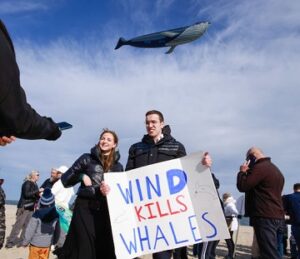 New Jersey is in the process of approving two major offshore wind projects: the Ocean Wind I and II initiatives owned by the Danish “green” energy company Ørsted. Radical leftist Governor Phil Murphy ordered a massive restructuring of the state’s power grid in September to become reliant on “100 percent clean energy by 2035” that has enjoyed enthusiastic support from the White House, which approved Ocean Wind I in July. To install the wind turbines necessary for the projects, engineers must survey and map the ground floor to find the ground best able to sustain the massive structures. The survey work being done in anticipation of the installation of these turbines has coincided with a massive increase in the number of dead whales and other marine mammals off the coasts of New York and New Jersey. >click to read< 10:28
New Jersey is in the process of approving two major offshore wind projects: the Ocean Wind I and II initiatives owned by the Danish “green” energy company Ørsted. Radical leftist Governor Phil Murphy ordered a massive restructuring of the state’s power grid in September to become reliant on “100 percent clean energy by 2035” that has enjoyed enthusiastic support from the White House, which approved Ocean Wind I in July. To install the wind turbines necessary for the projects, engineers must survey and map the ground floor to find the ground best able to sustain the massive structures. The survey work being done in anticipation of the installation of these turbines has coincided with a massive increase in the number of dead whales and other marine mammals off the coasts of New York and New Jersey. >click to read< 10:28
Gloucester celebrates its finest kind
 The launch of Gloucester Fisheries Heritage Month in the city’s 400+ anniversary year in front of the Fishermen’s Memorial on Stacy Boulevard on Tuesday evening celebrated the finest kind of the nation’s oldest fishing port. About 200 people cheered for the fishermen ages 80 and older who sat in the front row of chairs, and who were given a commemorative Gloucester 400+ medal as a way to honor them. “I couldn’t think of any better way to kick off this month than to honor the gentlemen here in front of me. I just want you to know you are all very near and dear to my heart,” said Al Cottone, a commercial fisherman and the executive director of the Gloucester Fisheries Commission. “You blazed the trail for what this industry is and hopefully what it will be in the future, and I just want to say thank you all, and today is for you.” 6 photos, >click to read< 07:47
The launch of Gloucester Fisheries Heritage Month in the city’s 400+ anniversary year in front of the Fishermen’s Memorial on Stacy Boulevard on Tuesday evening celebrated the finest kind of the nation’s oldest fishing port. About 200 people cheered for the fishermen ages 80 and older who sat in the front row of chairs, and who were given a commemorative Gloucester 400+ medal as a way to honor them. “I couldn’t think of any better way to kick off this month than to honor the gentlemen here in front of me. I just want you to know you are all very near and dear to my heart,” said Al Cottone, a commercial fisherman and the executive director of the Gloucester Fisheries Commission. “You blazed the trail for what this industry is and hopefully what it will be in the future, and I just want to say thank you all, and today is for you.” 6 photos, >click to read< 07:47
Bristol Bay drift permits drop in value
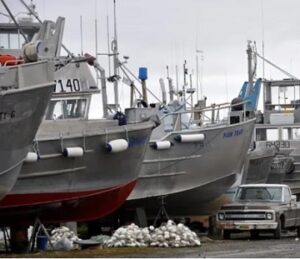 Just a few months ago, a permit for driftnet salmon in Bristol Bay went for over $225,000. There were many in that general price range late last fall. This month, the prices at permit brokerages show that some are being offered for as little as $140,000, more than a one-third drop in value. The price for commercial fishing permits goes up and down through time. In 2020, Bristol Bay drift permits could be found for between $170,000 and $180,000. Then they went up, and now they are down. >click to read< 19:43
Just a few months ago, a permit for driftnet salmon in Bristol Bay went for over $225,000. There were many in that general price range late last fall. This month, the prices at permit brokerages show that some are being offered for as little as $140,000, more than a one-third drop in value. The price for commercial fishing permits goes up and down through time. In 2020, Bristol Bay drift permits could be found for between $170,000 and $180,000. Then they went up, and now they are down. >click to read< 19:43
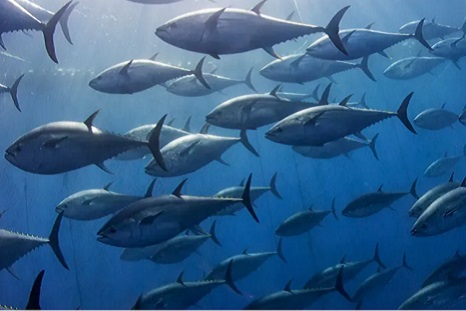
In bluefin tuna, fisheries science is never neat
Pinchin’s eponymous kings are Atlantic bluefin tuna, marine predators that can weigh well over a thousand pounds, “imagine a grand piano shaped like a nuclear weapon,” as Pinchin puts it. Bluefin are extraordinary organisms: warm-blooded, keen-eyed, coated in pigment-producing cells that flash a rainbow of colors when the fish are hauled onto a boat. Pinchin excels at evoking her piscine subjects, whose sickle-shaped tails beat nearly as fast as a hummingbird’s wing. “To stand beside a just-landed giant bluefin, still slick from salt water, feels akin to standing beside a natural marvel like Niagara Falls or an erupting volcano,” writes Pinchin, a Nova Scotia-based science journalist. “There’s beauty, but also danger.” Her book isn’t just an ode to bluefin — it’s about humankind’s obsession with them, a fixation as old as our species. >click to read< 16:29
Athearn Marine Agency Boat of the Week: 40′ Young Brothers Lobster Boat, 550HP John Deere Diesel
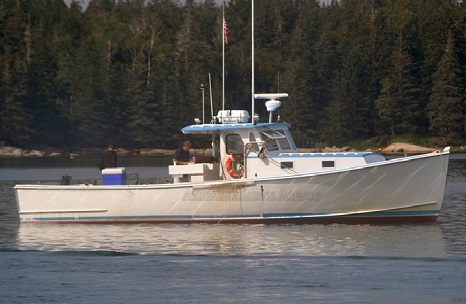 To review specifications, information, and 14 photos’, >click here<, To see all the boats in this series >click here< 11:36
To review specifications, information, and 14 photos’, >click here<, To see all the boats in this series >click here< 11:36
Trident’s new processing plant in Unalaska will be the largest in North America
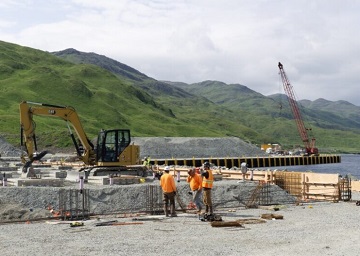 Trident Seafoods has begun building the first bunkhouses at its to-be processing plant in Unalaska’s Captains Bay, progressing on a timeline the seafood titan says would make it operational by 2027. The Aleutian Islands and Bering Sea region is home to some of the world’s most productive fishing grounds. It’s where most Alaska pollock comes from, the whitefish found in fish sticks and McDonald’s Filet-O-Fish sandwiches worldwide. And a lot of that fish is processed at the giant Trident Seafoods plant in Akutan. But aging infrastructure and decades of wear prompted the seafood company to plan a new facility. >click to read< 10:35
Trident Seafoods has begun building the first bunkhouses at its to-be processing plant in Unalaska’s Captains Bay, progressing on a timeline the seafood titan says would make it operational by 2027. The Aleutian Islands and Bering Sea region is home to some of the world’s most productive fishing grounds. It’s where most Alaska pollock comes from, the whitefish found in fish sticks and McDonald’s Filet-O-Fish sandwiches worldwide. And a lot of that fish is processed at the giant Trident Seafoods plant in Akutan. But aging infrastructure and decades of wear prompted the seafood company to plan a new facility. >click to read< 10:35
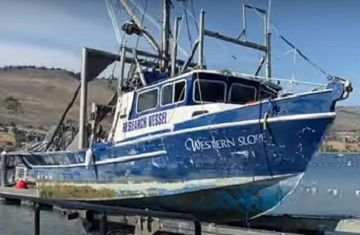
Capsized shrimp boat recovered from Okanagan Lake
The shrimp boat Travis Van Hill was working on the night he is presumed to have drowned is now out of Okanagan Lake. Crews were at Paddlewheel Park boat launch in Vernon Tuesday afternoon, dragging the formerly capsized boat out of the water. The boat has now been dry docked. Kim Van Hill, wife of the missing boat captain, says the boat will be taken away. It took two trucks to pull the vessel out of the water. Van Hill was not found on the boat when it was recovered. Some believed he had been caught in the netting pulled behind the boat, but when the netting was recovered, Van Hill was not among it. Video, >click to read< 09:47
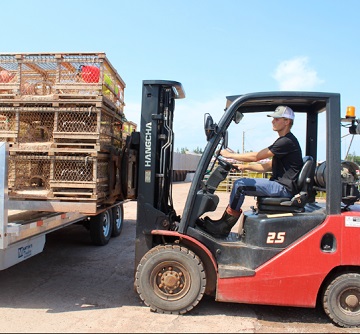
Fall lobster fishers hoping for a prosperous season
“We always look forward to going fishing,” said Mark Arsenault, president of the Prince County Fishermen’s Association. “It’s a gamble, you look to see if you’ve got a winning hand or not.” While prices have been looking good in the lead up to the season that starts on Aug. 9, one concern on the minds of fishers is if there will be any more grid closures should any more North Atlantic Right Whales be spotted in the Gulf of St. Lawrence. “There’s an area that’s closed and it looks like it’s going to be closed until November,” said Mr Arsenault. “It’s deep water, from the 24/25 line to probably close to Miminegash. We’re trying to get a two week closure instead of a seasonal closure, but time will tell how that will go.” >click to read< 08:54
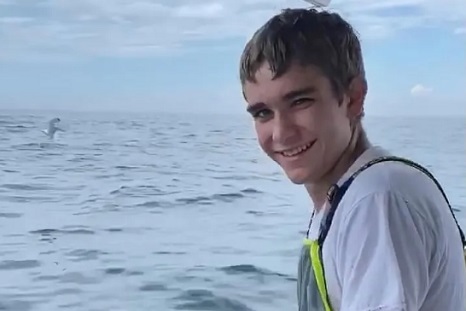
‘He was bigger than life’: Family of missing lobsterman plans memorial
The last day Tylar Michaud went out to haul and set his lobster traps near Petit Manan Point, a thick fog hugged the coast of Down East Maine. The routine was familiar for the 18-year-old fisherman from the small fishing village of Steuben. He grew up on the water learning how to catch lobster alongside his stepfather Bryant Kennedy, a fourth-generation lobsterman. But on July 21, something went wrong. That evening, Michaud’s boat, F/V Top Gun, was found still in gear, moving in a slow arc with no one aboard. An intense search began. Nearly two weeks later, it continues even as his family, friends and others in the close-knit fishing community acknowledge that he did not survive and start to celebrate the young man who made an impression on everyone he met. >click to read< 07:42
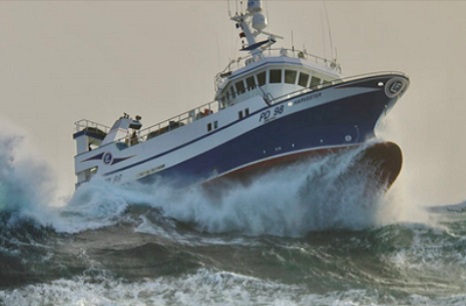
Scottish Fishermen 3 Major Preferences
Lunar Fishing, a Scottish fishing company operating in the North Sea and the Atlantic, relies on custom-built boats from Danish Karstensens Shipyard and CP-propulsion equipment, propellers, and thrusters from Danish Hundested Propeller for their fishing operations. The harsh weather conditions and challenging seas demand robust and high-quality equipment to ensure the safety and efficiency of their fishing vessels. Lunar Fishing has four custom-built boats, with two of them equipped with CP Marine Gear, propellers, and thrusters from Hundested Propeller. According to fisherman Philip Stephen, the choice of equipment is essential due to the demanding conditions they face at sea. The vessels must withstand significant stress and tension, especially during adverse weather conditions. The fishermen need to have full confidence in their boats, and reliable equipment plays a crucial role in their operations. >click to read< 20:39
Coast Guard rescues man from commercial fishing vessel taking on water in Juneau, Alaska
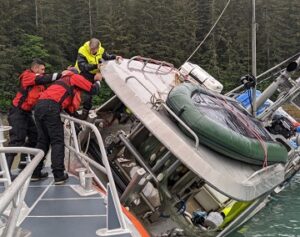 The Coast Guard rescued a mariner Tuesday morning after his vessel began taking on water in the Gastineau Channel. A 45-foot Response Boat-Medium crew from Coast Guard Station Juneau safely evacuated the survivor at 6:33 a.m. and transported him in stable condition to Harris Harbor. Watchstanders at the Coast Guard Sector Southeast Alaska command center received notification via channel 16 at 6:08 a.m. that the 40-foot commercial fishing vessel F/V Marco was taking on water with one person aboard. >click to read< 16:12
The Coast Guard rescued a mariner Tuesday morning after his vessel began taking on water in the Gastineau Channel. A 45-foot Response Boat-Medium crew from Coast Guard Station Juneau safely evacuated the survivor at 6:33 a.m. and transported him in stable condition to Harris Harbor. Watchstanders at the Coast Guard Sector Southeast Alaska command center received notification via channel 16 at 6:08 a.m. that the 40-foot commercial fishing vessel F/V Marco was taking on water with one person aboard. >click to read< 16:12
Bristol Bay Sees Strong Wild Sockeye Harvest to Follow Up Record-Breaking Year
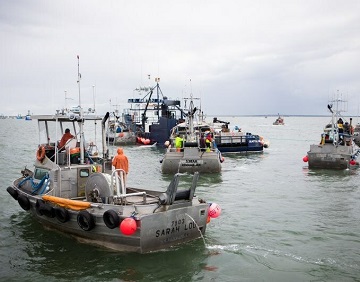 The cumulative wild sockeye salmon harvest through the end of July in Bristol Bay, Alaska, currently sits at 38 million fish, surpassing the forecast of 37 million fish. As anticipated, this season’s strong returns make 2023 one of the top five harvest seasons of the past 20 years – quite a follow-up to last year’s all-time record-breaking harvest. Bristol Bay is known as “America’s Wild Sockeye Source,” and is home to the largest wild salmon run on the planet, producing half the world’s supply of wild sockeye. “The strong harvests out of Bristol Bay in recent years are a testament to the responsible fisheries management of Alaska and the Bristol Bay fishing industry including fishermen, biologists, local community and seafood processors, and speak to the health and thriving future of the wild sockeye in the region,” >click to read< 13:08
The cumulative wild sockeye salmon harvest through the end of July in Bristol Bay, Alaska, currently sits at 38 million fish, surpassing the forecast of 37 million fish. As anticipated, this season’s strong returns make 2023 one of the top five harvest seasons of the past 20 years – quite a follow-up to last year’s all-time record-breaking harvest. Bristol Bay is known as “America’s Wild Sockeye Source,” and is home to the largest wild salmon run on the planet, producing half the world’s supply of wild sockeye. “The strong harvests out of Bristol Bay in recent years are a testament to the responsible fisheries management of Alaska and the Bristol Bay fishing industry including fishermen, biologists, local community and seafood processors, and speak to the health and thriving future of the wild sockeye in the region,” >click to read< 13:08
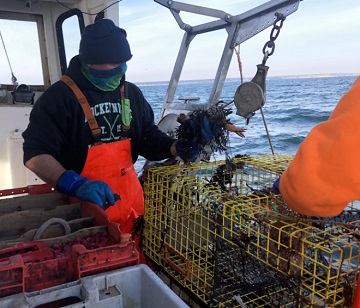
A discussion – Costs of using ropeless fishing gear could sink MA lobster fishery: new report
Experts often say the lobster fishery will have to move to innovative “ropeless” fishing gear to protect North Atlantic right whales from entanglement. There fewer than 340 of the critically endangered whales left. But a new report says Massachusetts lobstermen may be headed for troubled economic waters if they make the switch. But here’s what’s really crazy: the state found that even if lobstermen were just given the on-demand gear for free, using government and nonprofit subsidies, they would still go from making $15 million per year in revenue to just $2 million in revenue per year. And the biggest impacts would be on smaller, more independent operators. I talked to the report author about this, Noah Oppenhiem. He said for lobstermen that only fish only a couple traps per vertical line, they’d go from needing 6 and a half minutes to haul up some lobsters to 11 and a half minutes. >click to read< 11:56
Mass DMF’s On-Demand Fishing Gear Economic Modeling Report Released – >Click to read<
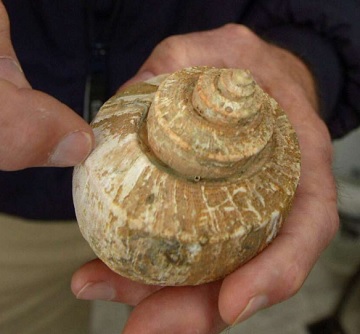
Falling prices, new regulations leave Connecticut’s whelk fisherman in a pinch
Squeezed by both falling prices and increased regulations, whelk fishermen in Long Island Sound say their industry is facing one of the hardest summers in recent memory. Driven largely by overseas demand, many fishermen turned their attention toward the once-ignored whelk as it became harder to make a living off of lobster and other declining fisheries. After watching the price of whelk soar last year, however, fishermen say the Asian market for the snails has largely dried up, sending prices crashing. Brian Matias, a boat captain who works out of Bridgeport, said he now gets half the price for whelk as he did over the winter, forcing fishermen like him to work longer hours at sea to increase their catch. >click to read< 10:53
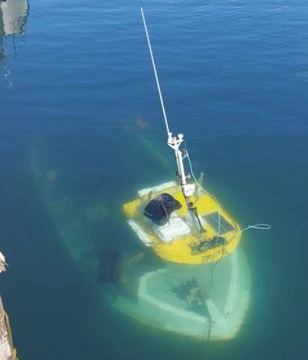
Huge reward offered after masked man drills holes in fishing boat at Fife dock
Police are investigating reports a masked, hooded man scaled the perimeter fence and drilled holes in the hull of the vessel causing it to submerge, leaving owners, Tina and Ross Coventry, unable to run their shellfish delivery business which provides lobster and mackerel to a number a number of high-end restaurants across Fife and Edinburgh at the very height of the season. “It took less than four minutes to destroy our livelihoods,” said Ross. “We need to get the boat back on to dry land to see what the damage is and whether it is worth repairing. The hull can be fixed, but the engine has been in sea water for a whole week and the there is no hope of the electronics in it working. >click to read< 09:50
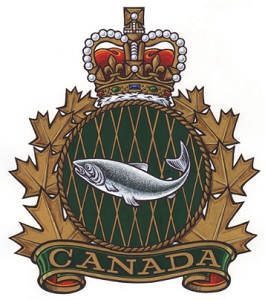
Scientists Level New Critiques of Fisheries and Oceans Canada’s Scientific Rigor
Twenty-five years ago, after the collapse of the Atlantic cod fishery, Jeffrey Hutchings, a preeminent fisheries scientist and professor at Dalhousie University in Nova Scotia, sounded the alarm that Canada’s federal fisheries department was allowing “nonscience influences” in critical decision-making. Writing at the time, he said, “There is a clear and immediate need for Canadians to examine very seriously the role of bureaucrats and politicians in the management of Canada’s natural resources.” Today, a new crop of researchers is once again imploring Fisheries and Oceans Canada (DFO) to change its ways. At the core of their concerns is a number of systemic and structural ways in which DFO gathers, parses, and handles scientific information, and how that advice is passed on to decision-makers. >click to read< 09:20
Werft wins new build project for multifunctional fishing vessel
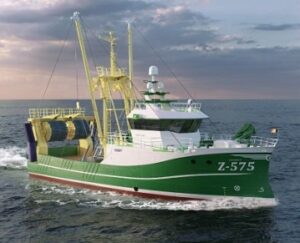 The Flemish trawler will be named Janneke after the daughter of the captain/owner Jelle Hakvoort and be 27.99 metres long with a beam of 8.25 metres. Hakvoort himself is delighted with the design. “It is ideal for beam rawling in the winter months, and twin rigging in the summer; either for plaice or crustaceans.” Hakvoort has spent his career to date fishing on Eurocutters, known as the smaller segment in Belgium, and is now switching to a larger segment: “I have complete faith in Werft and its experienced partners,” he adds. >click to read< 08:26
The Flemish trawler will be named Janneke after the daughter of the captain/owner Jelle Hakvoort and be 27.99 metres long with a beam of 8.25 metres. Hakvoort himself is delighted with the design. “It is ideal for beam rawling in the winter months, and twin rigging in the summer; either for plaice or crustaceans.” Hakvoort has spent his career to date fishing on Eurocutters, known as the smaller segment in Belgium, and is now switching to a larger segment: “I have complete faith in Werft and its experienced partners,” he adds. >click to read< 08:26






